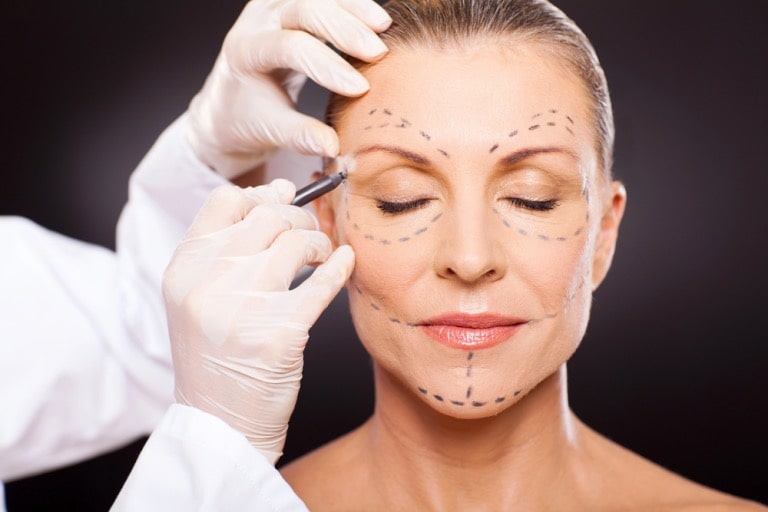Plastic & reconstructive surgeons collaborate closely with physicians from other specialties tо treat both reconstructive and cosmetic surgery needs оf their patients. Reconstructive procedures performed by plastic & reconstructive surgeon may include cleft lip repair, burn reconstruction, and hand surgery performed tо address injuries оr congenital conditions like polydactyly (extra fingers/toes at birth).
Cosmetic surgeries include laser skin resurfacing, mole removal, breast reduction, facelifts, and rhinoplasty procedures – as well as cryolipolysis tо safely dissolve fat deposits within the body.
What is Plastic Surgery?
Plastic surgery is the specialty concerned with reconstructive or alterative procedures on human bodies, including reconstruction. It generally falls into two categories: reconstructive and cosmetic.
Reconstructive plastic surgery seeks to repair damage from injury or illness. This may involve birth defects such as cleft lips and palates, burns or car accidents as well as treatment side-effects like mastectomy or breast reconstruction.
“Plastic” does not imply artificiality; rather it derives from the Greek term plastikos which means to shape. Reconstructive surgery frequently employs autografts — cultured sheets of epithelial cells — allografts from members of one species or even xenografts from animals- to replace damaged tissues.
Facial Plastic Surgery
Facial plastic surgery encompasses cosmetic treatments as well as reconstructive procedures. Although technically considered part of Otolaryngology Head and Neck Surgery, facial plastic surgery has substantial overlap with oral maxillofacial surgery, dermatology and ophthalmology practices.
Procedures available at our center include rhinoplasty (cosmetic nasal surgery to aesthetically alter or correct the nose) and facial rejuvenation with both surgical and nonsurgical techniques, such as laser skin resurfacing, injectable fillers and neuromodulators. Ear reconstruction such as repairs to cleft lips and palates; gender affirming surgery to accommodate sexual changes; hand surgery for injuries like phrenic nerve repair are also among our specializations.
Reconstructive surgeries can be life-altering for those recovering from serious injuries or illnesses, and plastic surgeons work closely with other physicians from other specialties to ensure patients receive comprehensive care.
Breast Reconstruction
Breast reconstruction helps women who have undergone mastectomy regain a sense of physical wholeness by providing them with the confidence to wear clothing requiring both breasts, such as swimsuits or bras. Furthermore, reconstruction eliminates the need for uncomfortable prosthetic devices.
Plastic surgeons employ various approaches to reconstruct breasts. Implants or transplants of tissue from elsewhere on the body (such as belly) may be utilized, while flap reconstruction repurposes healthy skin and muscle from another part of the chest or abdomen to reconstruct breasts.
Cigarette smoking can be detrimental to these surgeries as it disrupts skin circulation and slows wound healing. Doctors usually advise their patients not to smoke for several weeks prior to and following these procedures.
Body Contouring
Surgical body contouring techniques remove excess skin or fat tissue for cosmetic enhancement purposes, helping fine-tune one’s figure after significant weight loss, pregnancy changes or other life events.
Noninvasive devices such as cryolipolysis (using cold temperatures to destroy fat cells), injection lipolysis (injecting deoxycholic acid to target fat cells), laser and radiofrequency lipolysis (using heat waves to target fat cells) and radiofrequency lipolysis may help reduce cellulite or slim down an area, but their results only last as long as your body remains stable.
Surgery options to combat stubborn fat deposits include liposuction and abdominoplasty – two procedures that may require general anesthesia and overnight stays for success.
Hand Surgery
Hand surgeries offer solutions for a wide range of conditions and injuries that affect hands, wrists, arms and fingers. Hand surgeons are equipped to treat fractures, dislocations, sprains, nerve injuries as well as chronic pain syndromes like carpal tunnel syndrome or trigger finger.
Tendon repair surgery aims to restore function following severe or sudden injuries to tendons that connect muscles to bones. It may involve tendon grafts – replacing damaged tendons with healthy fibers from other parts of the body – in order to restore functionality.
Other procedures may include fasciotomy to relieve compartment syndrome – an uncomfortable condition caused by increased pressure in the tissues surrounding the hand and wrist – while surgical drainage removes abscesses or any pockets of pus that might form.
Complex Wound Care
Complex wound care primarily serves the purpose of providing advanced therapies needed to promote healing of any type of wound, from cuts, abrasions, pressure sores, venous or arterial ulcers, surgical incisions or any type of injury that requires extensive healing processes such as burns. Wounds won’t heal until all damaged tissues have been replaced by healthy ones – these factors need to be in balance in order to be considered healed.
Identification and categorization of wound causes are crucial to proper wound care, particularly for patients suffering from systemic pathologies that interfere with normal healing, such as diabetic foot ulcers or chronic wounds related to vasculitis. Such patients are at higher risk for infection as they typically have additional medical conditions that make healing harder than usual.








